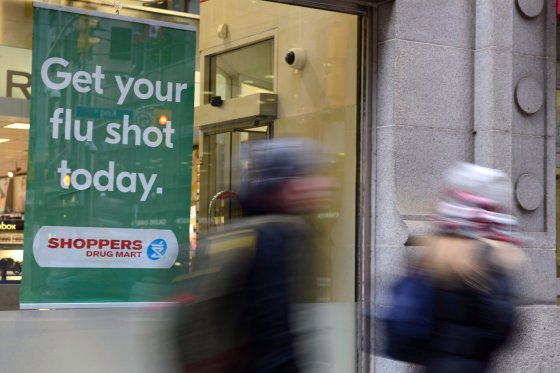| 
Ottawa ending random COVID-19 testing at airports Federal officials often drop big news on Fridays, and this week was no exception. On Friday, Ottawa announced random COVID-19 testing will be temporarily suspended at all airports beginning Saturday, June 11, until June 30. However, unvaccinated travellers will still be required to be tested on-site. The government also announced that, as of July 1, all testing, including for unvaccinated travellers, will be performed off-site. Read more about this development and how this fits into conversations happening across Canada about lifting pandemic mandates here. Monkeypox and travel: What you should know This week, the Public Health Agency of Canada issued a travel health notice to encourage people travelling outside the country to take extra precautions amid the ongoing monkeypox outbreak in countries around the world. Since this is the time of year many Canadians take summer holidays, you may be wondering what this means for your summer getaway plans. Global News reporter Teresa Wright spoke to some experts to get the skinny on what risks monkeypox poses to travellers. Click here for all the details. Speaking of monkeypox, the World Health Organization confirmed this week more than 1,000 cases of this disease have been reported in countries outside Africa, where the virus is endemic. Canada has confirmed at least 98 cases of people infected with the virus, with 90 in Quebec, five in Ontario, two in Alberta and one in British Columbia. 
Australia seeing record flu cases. What about Canada?  After an unusual late-spring surge in influenza cases in Canada, flu cases have begun to decline across the country. But in Australia — which has long been looked at by Canadian health experts in preparation for flu season here — influenza cases have been on the rise since early March, and have exploded in recent weeks. Flu cases have been low since the onset of COVID-19 in 2020, but with the pandemic easing in certain parts of the world, other respiratory viruses are beginning to re-emerge and Canadians should be vigilant, especially considering what's happening in Australia. So could what’s happening in the Land Down Under be a precursor for Canada’s flu season? Global News reporter Aaron D’Andrea has the details. Read his story here. 
Q: How long can the Omicron variant of COVID-19 remain active on surfaces and can Omicron survive longer than the original strain of the virus? When the COVID-19 pandemic began, many individuals, organizations and businesses were led to believe furious disinfection of every surface was needed to help prevent the spread of the virus. But since then, after many studies, consensus has emerged among most in the scientific community that surface transmission is not something to be overly concerned about, given the low probability of catching COVID-19 through touch. But is that different when we’re talking about the more contagious Omicron variant? As it turns out, some research has emerged saying it may survive little bit longer on some surfaces than the ancestral COVID-19 strain, says Emanuel Goldman, professor of microbiology, biochemistry and molecular genetics at Rutgers New Jersey Medical School. However, Goldman says he believes those studies came out with overestimated results because they used too much virus in their tests, which doesn’t reflect a “realistic situation in relation to the real world.” “If you use large concentrations of the virus, it will last longer,” he said. The longest this kind of virus can survive on a surface is about 60 minutes, Goldman said. But even then, it’s actually harder than one might think to catch any strain of COVID-19 through touch. “The virus does not transfer very well on the fingers… 15 per cent is the maximum transfer rate on the finger,” Goldman said, noting that viruses are “fragile” outside of an infected person. “There's also evidence the virus is killed on the skin, just by the skin itself.” That’s why he says the chances of catching Omicron through surfaces is of “negligible importance, just like we concluded for the earlier strains of SARS-CoV-2.” Albert Ko, a professor of epidemiology and medicine at the Yale School of Public Health, agreed. This is why an advisory group he sat on recommended last year that stringent disinfecting practices be dropped from the state of Connecticut’s reopening plans. “That doesn't mean that people shouldn't wash their hands after contact with others,” Ko said. “Good, clean personal hygiene practices, using face masks — especially if you're unvaccinated or not up-to-date with your vaccination — is still recommended.” |
No comments:
Post a Comment